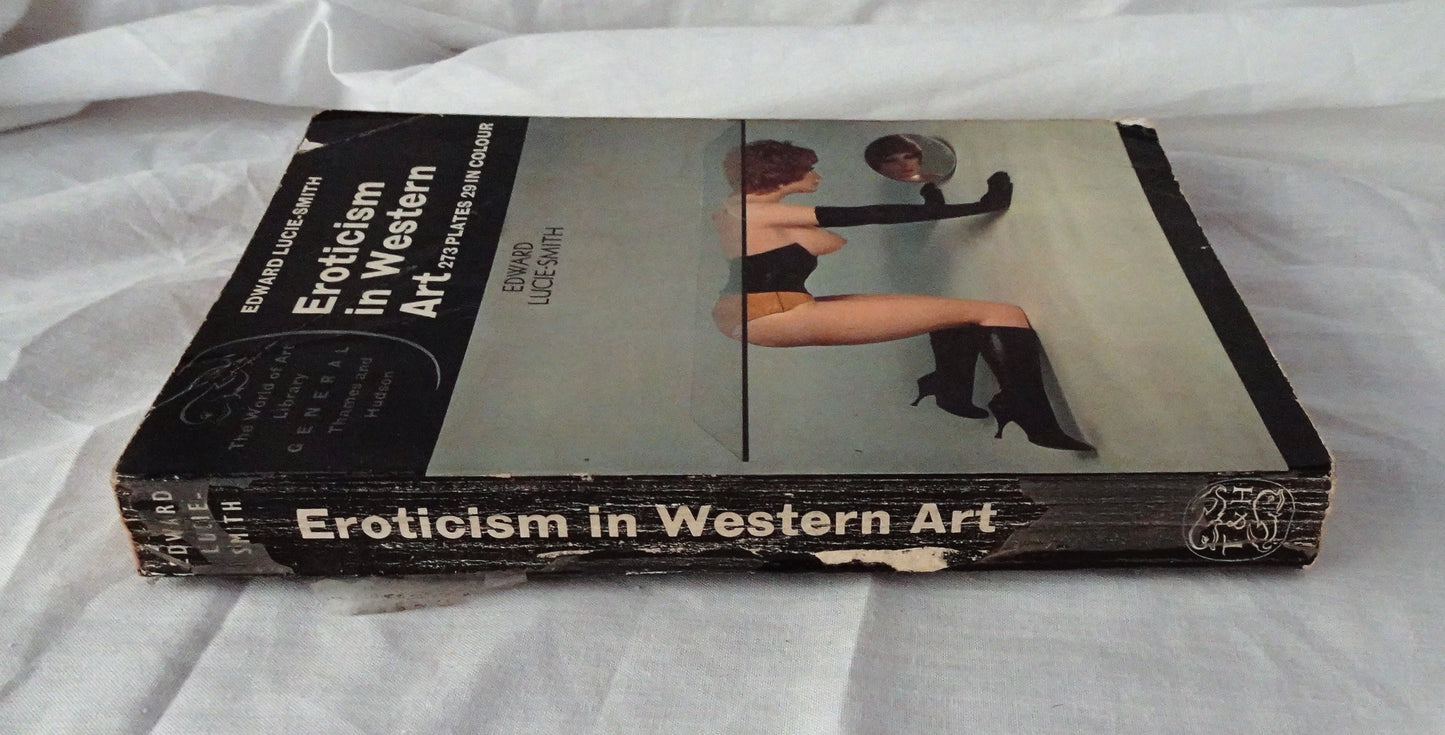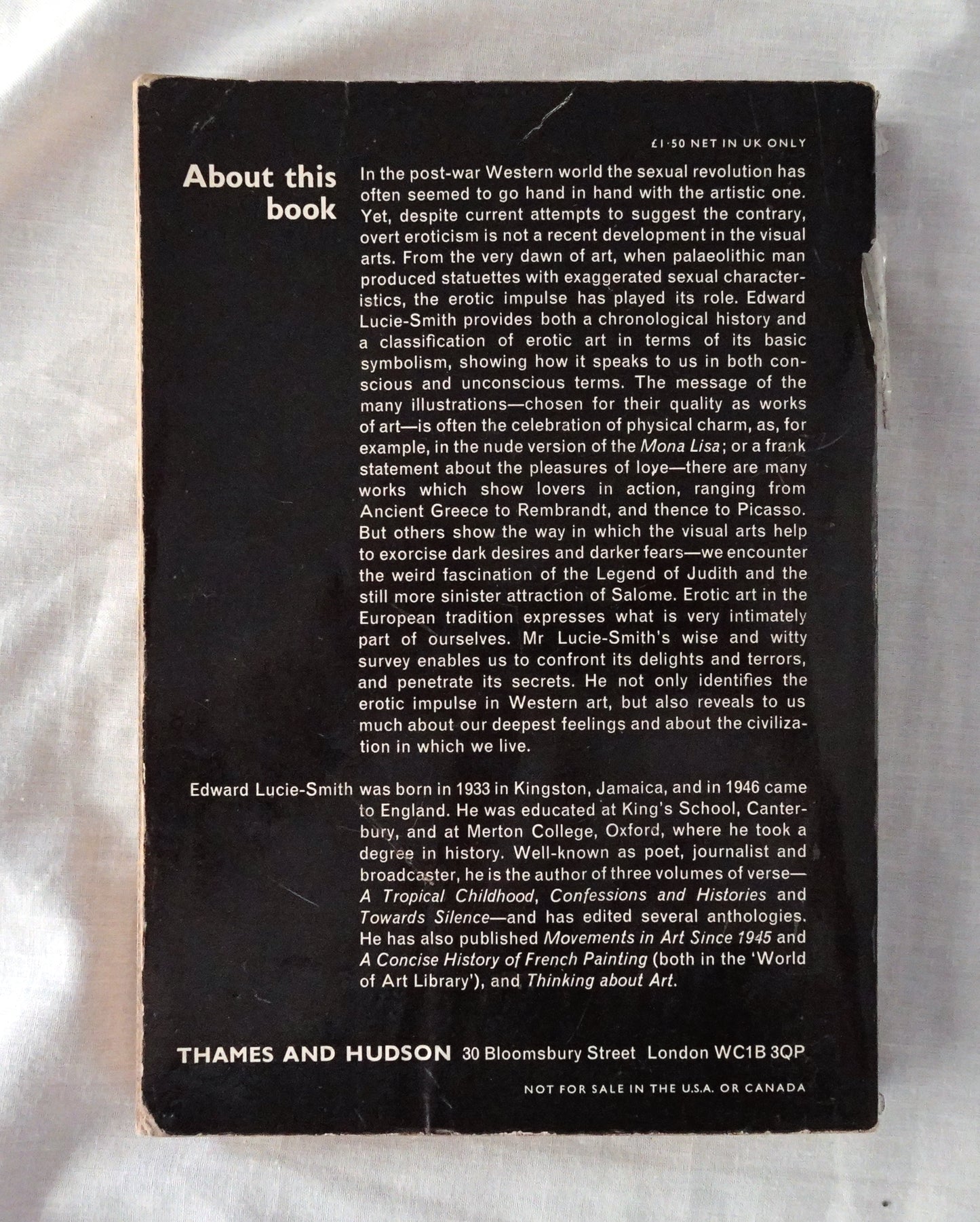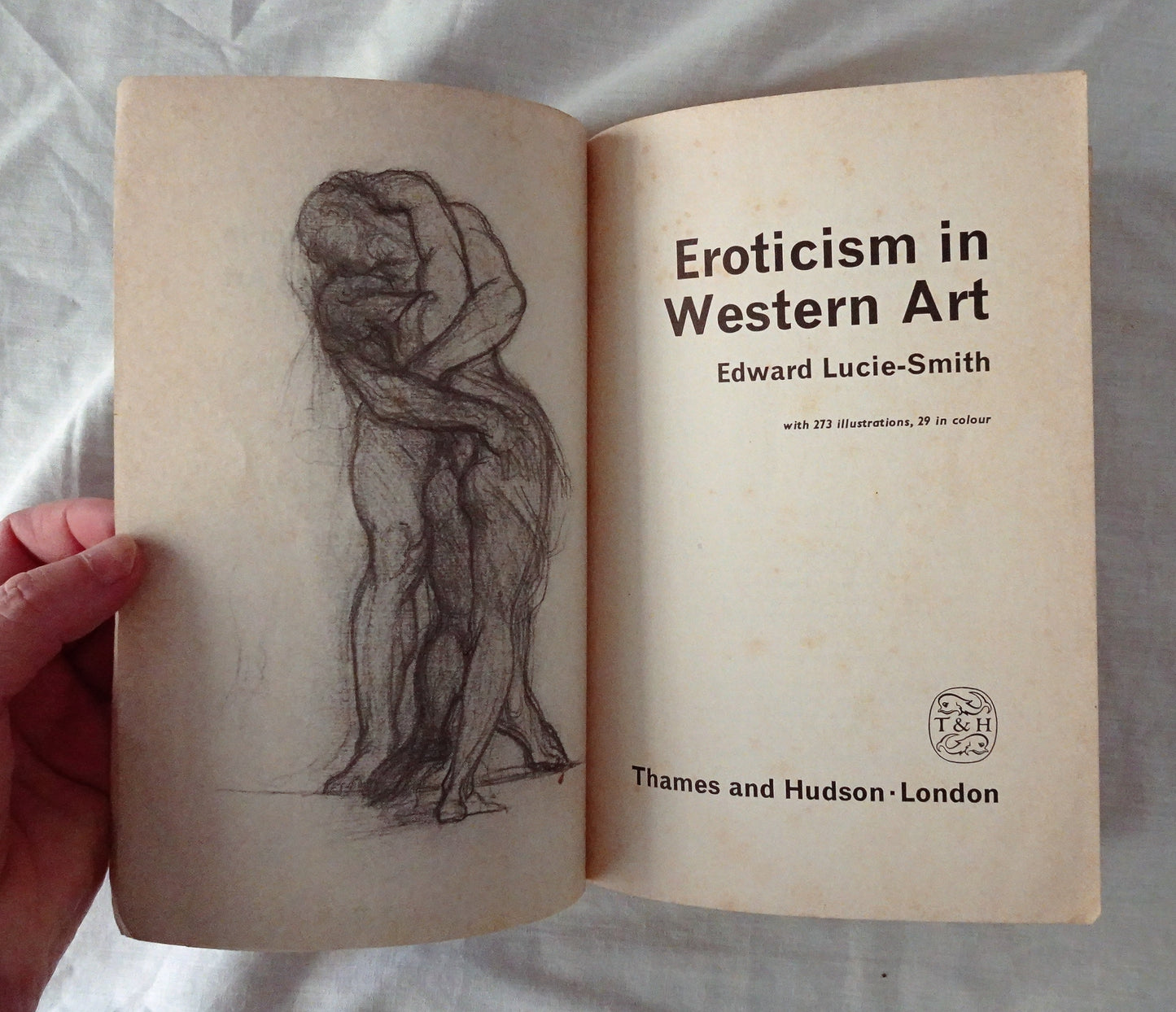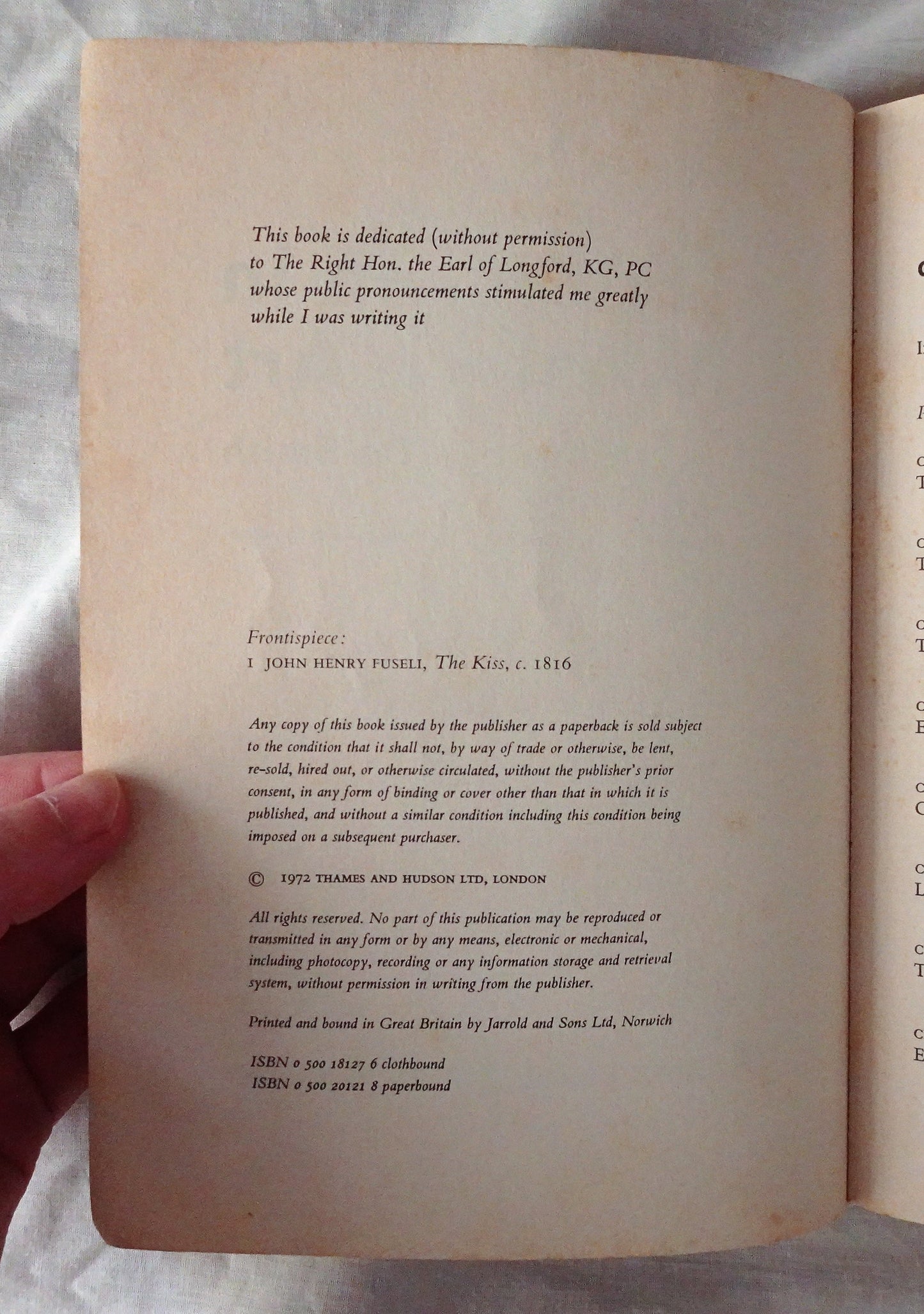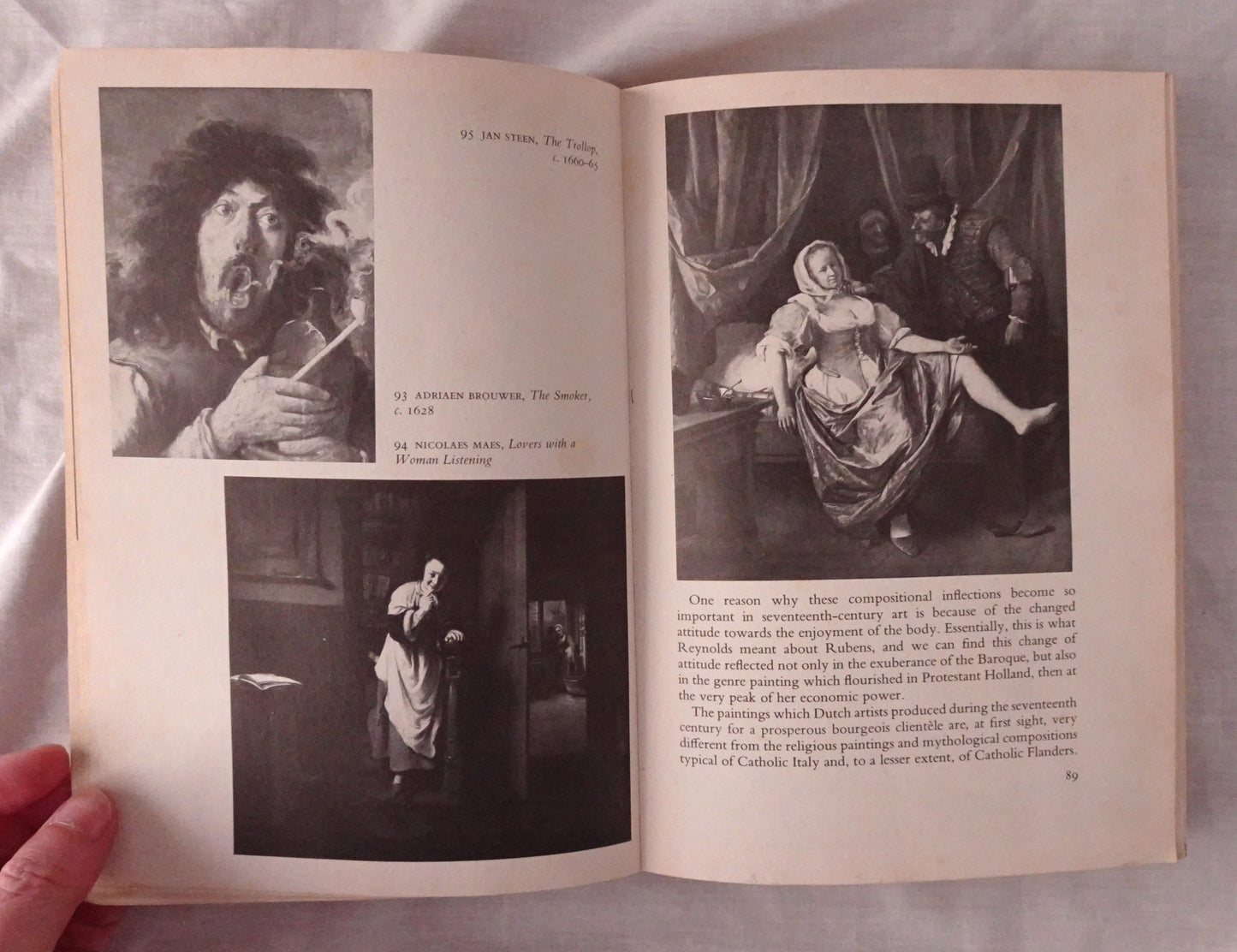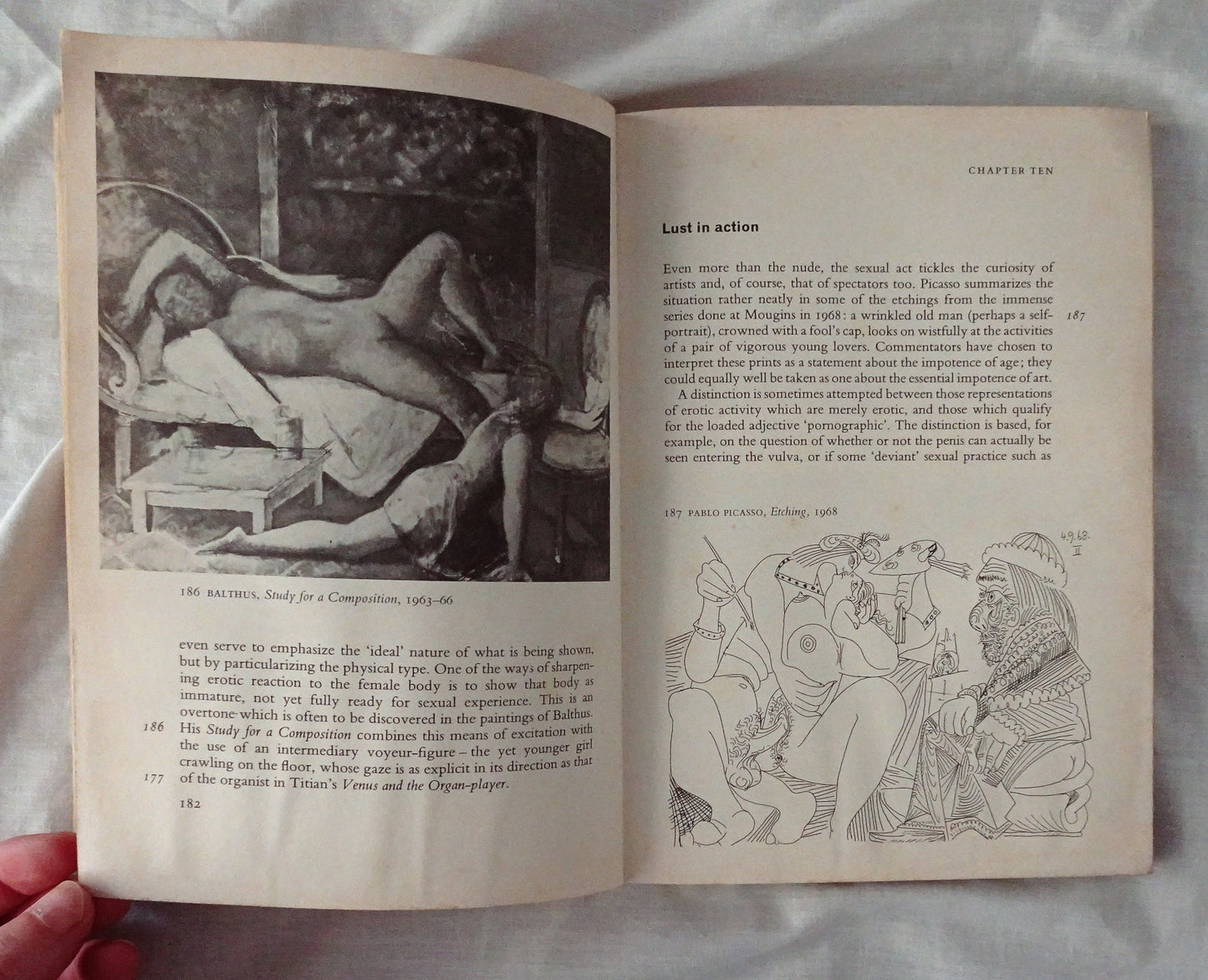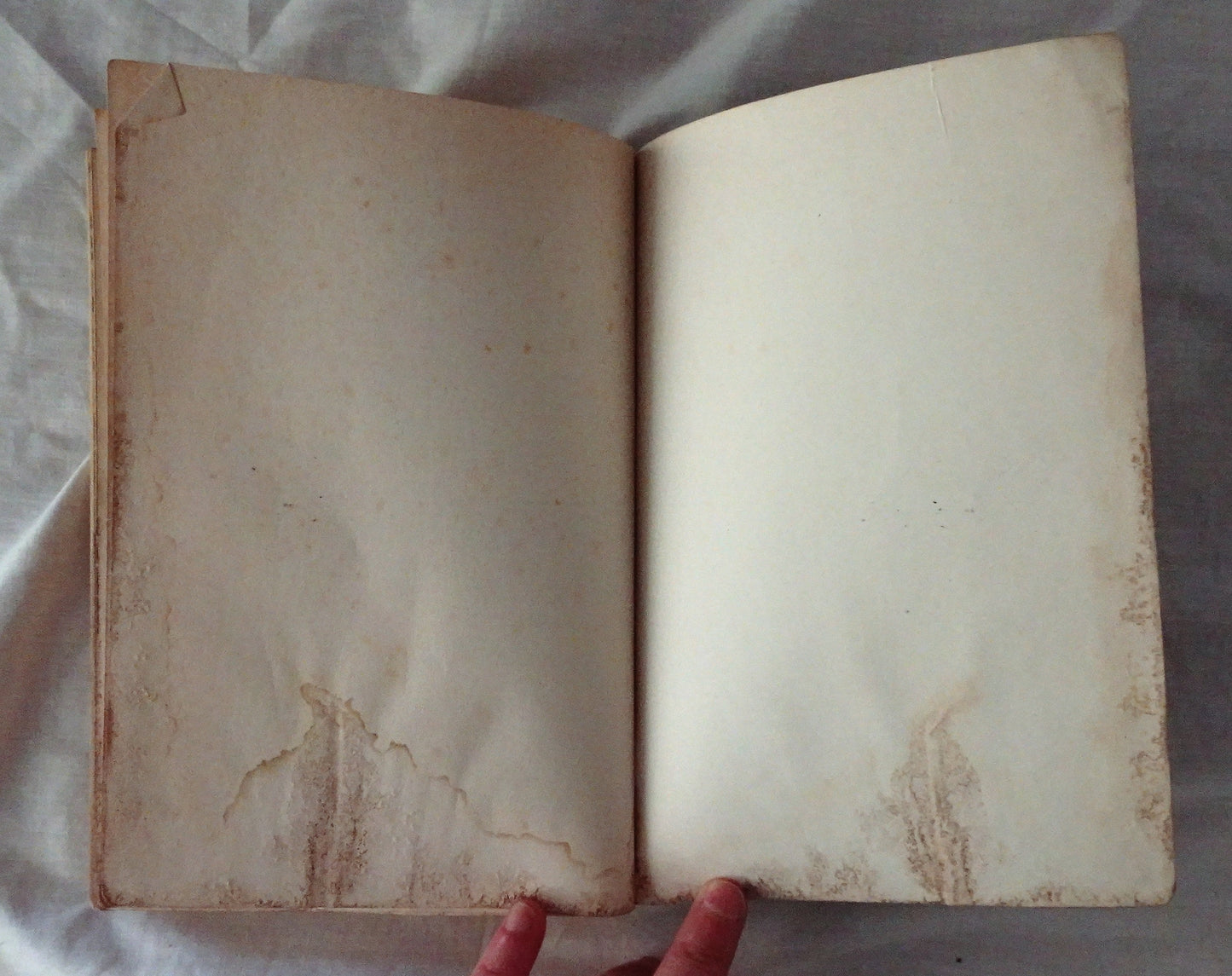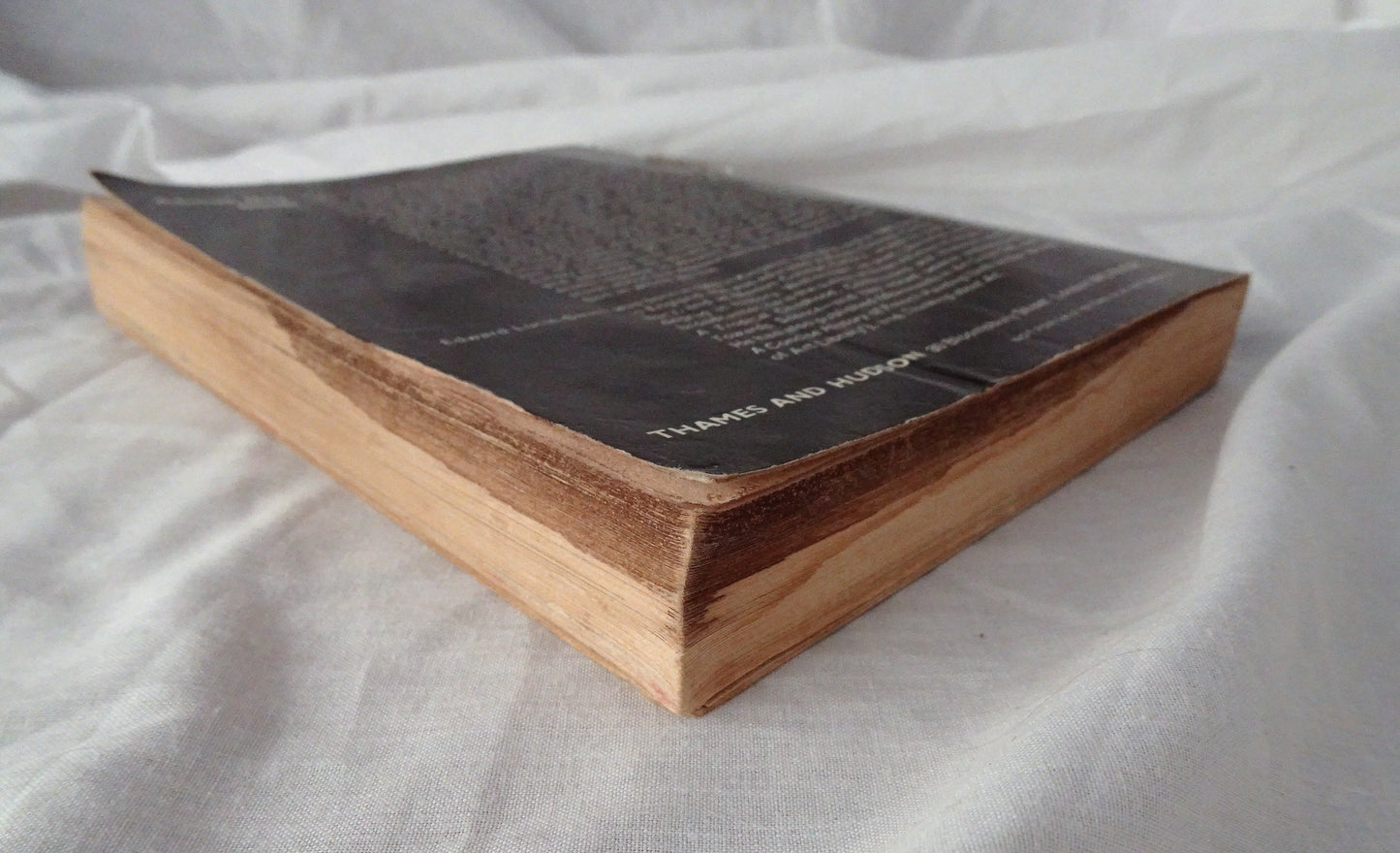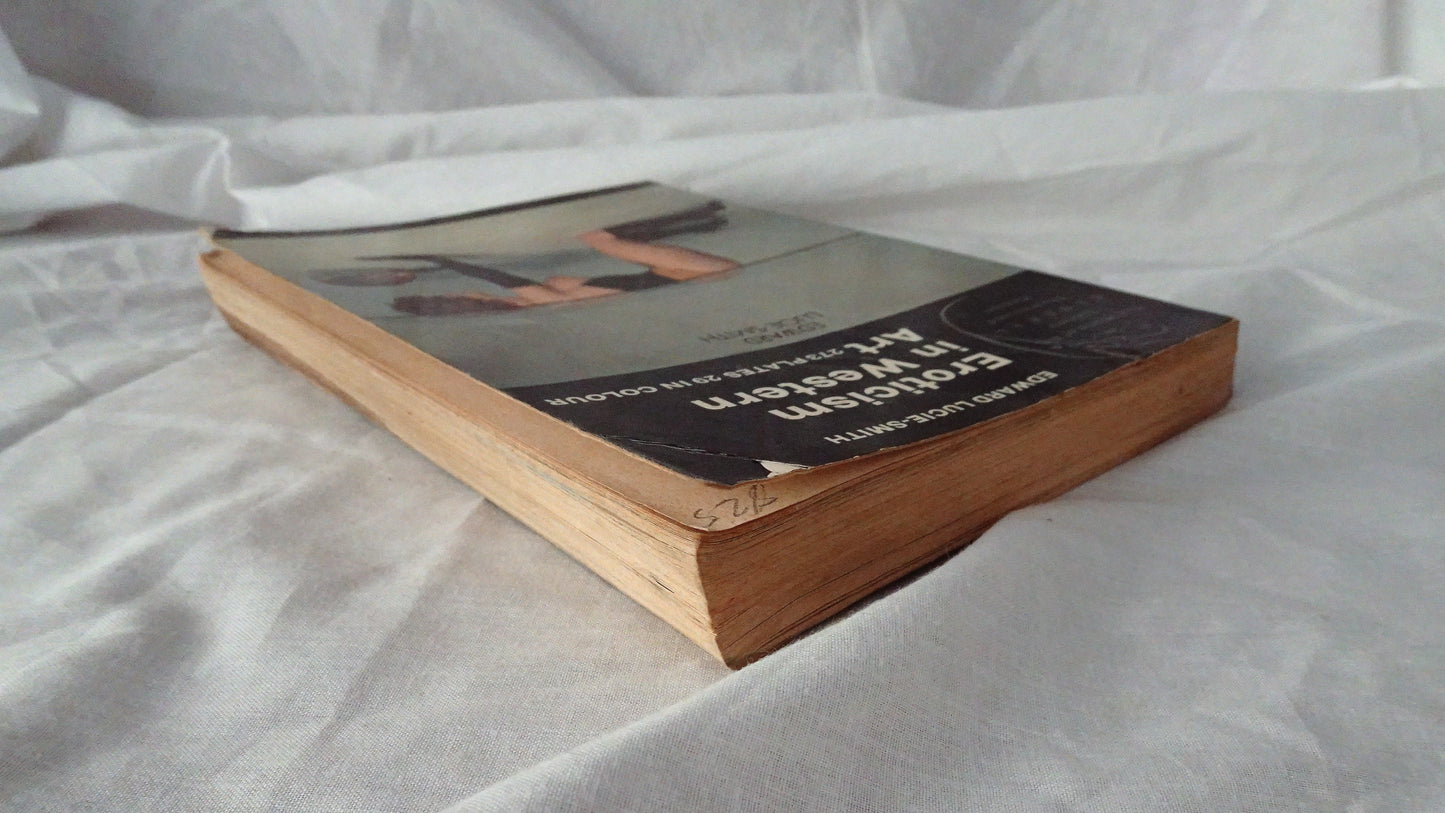Eroticism in Western Art by Edward Lucie-Smith
Eroticism in Western Art by Edward Lucie-Smith
Couldn't load pickup availability
Eroticism in Western Art
by Edward Lucie-Smith
Thames and Hudson, 1972, ISBN 0500201218, colour and black and white photographs throughout, illustrated frontispiece, paperback
Good Condition, some edge and shelf wear, some rubbing and bumping to edges and corners, some discoloration, creasing and marking to covers and fore-edges, some liquid staining to bottom back half of book, some foxing, laminate peeling from cover (see photographs)
“In the post-war Western world the sexual revolution has often seemed to ho hand in hand with the artistic one. Yet, despite current attempts to suggest the contrary, overt eroticism is not a recent development in the visual arts. From the very dawn of art, when Palaeolithic man produced statuettes with exaggerated sexual characteristics, the erotic impulse has played its role. Edward Lucie-Smith provides both a chronological history and a classification of erotic art in terms of its basic symbolism, showing how it speaks to us in both conscious and unconscious terms. The message of the many illustrations – chosen for their quality as works of art – is often the celebration of physical charm, as, for example, in the nude version of the Mona Lisa; or a frank statement about the pleasures of love – there are many works which show lovers in action, ranging from Ancient Greece to Rembrandt, and thence to Picasso. But others show the easy in which the visual arts help to exorcise dark desires and darker fears – we encounter the weird fascination of the Legend of Judith and the still more sinister attraction of Salome. Erotic art in the European tradition expresses what is very intimately part of ourselves. Mr Lucie-Smith’s wise and witty survey enables us to confront its delights and terrors and penetrate its secrets. He not only identifies the erotic impulse in Western Art, but also reveals to us much about our deepest feelings and about the civilization in which we live.”
Share

